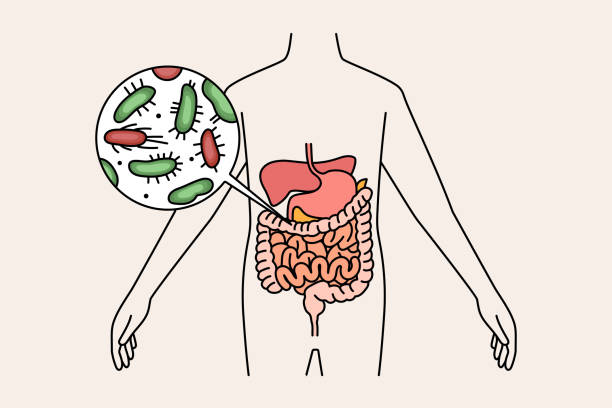
Lately we have been hearing a lot about gut and microbiome health. Some people live feeling bloated, avoiding certain foods hoping they can improve these symptoms. Others are taking probiotics without knowing what they really are or what they do but they have heard they are good so they go to the store and buy whatever they find without changing their diet.
Today I am going to share with you a guide designed to help you enhance your gut microbiome health in simple terms based on the insightful takeaways from a recent episode of the Huberman Lab Podcast.
What is the gut microbiome and why is it important?
We all have several organisms living inside our gut. These microbes are essential for our overall health: they function as our own personal supporters, aiding our immune system, brain functions, and even hormones. We must care for them to ensure they perform optimally.
When the diversity of microbiomes is low we experience a dysbiosis, a microbial imbalance that has been associated with autoimmune diseases, obesity and cardiometabolic conditions.
Here are six tools you can begin using today to enhance your gut health:
1. Consume Fermented Foods:
Fermented foods contain live cultures that can greatly benefit your gut. Some examples are plain yogurt, kimchi, kombucha and sauerkraut. Make sure you select fresh options from the refrigerated section for maximum effectiveness. You could also make them at home.
2. Include Prebiotics and Probiotics:
Prebiotics serve as the fuel for your gut bacteria, while probiotics are the bacteria themselves. You can include low levels of probiotics and probiotics while still focusing on eating high quality foods to improve microbiome health. However, remember to exercise moderation. Excessive intake may lead to brain fog, so pay attention to your body's signals.
The gut microbiome is uniquely personalized so remember that supplementation will impact each one differently. If you wish to supplement with prebiotics and probiotics I encourage to consult with a health professional.
3. Prioritize Quality Sleep:
High levels of stress affect our microbiome. That is why adequate sleep is our gut's ally. Aim for the recommended 6-9 hours each night to manage stress levels and keep your gut microbes content.
4. Avoid Processed Foods:
Food additives are always present in processed foods and they can disrupt the mucus layer of the gastrointestinal tract.
Avoid packaged snacks filled with additives. Instead, opt for whole, plant-based foods that nourish your microbiome and combat inflammation.
5. Be Cautious with Artificial Sweeteners:
While their impact is still under investigation, artificial sweeteners could disrupt your gut bacteria. Consider swapping them for natural alternatives like natural stevia or avoid them altogether.
6. Don't over sanitize:
Exposure to environmental microbes is like a mini-training session for your immune system. Skip the antibacterial soap occasionally and allow nature to work its wonders.
I hope this tips help you improve your gut health and your overall health.
References:
David A. Mills, Justin L. Sonnenburg. "Gut Microbiota: Global Priorities and Challenges in Understanding How Microbes Shape Host Physiology." Nature Reviews Microbiology, 2019. Link
Sonnenburg, J. L., & Bäckhed, F. (2016). "Diet–microbiota interactions as moderators of human metabolism." Nature, 535(7610), 56–64. Link
Sonnenburg, J. L., & Fischbach, M. A. (2011). "Community health care: Therapeutic opportunities in the human microbiome." Science, 33, 569–573. Link
Ley, R. E., Turnbaugh, P. J., Klein, S., & Gordon, J. I. (2006). "Microbial ecology: Human gut microbes associated with obesity." Nature, 444(7122), 1022–1023. Link
Gardner, C. D., & Sonnenburg, J. L. (2019). "Fermented Foods and Beverages as a Route to Improved Gut Health and Beyond." Current Opinion in Biotechnology, 44, 94–102. Link
Gibson, G. R., & Roberfroid, M. B. (1995). "Dietary modulation of the human colonic microbiota: introducing the concept of prebiotics." Journal of Nutrition, 125(6), 1401–1412. Link
Singh, R. K., Chang, H. W., Yan, D., Lee, K. M., Ucmak, D., Wong, K., … Liao, W. (2017). "Influence of diet on the gut microbiome and implications for human health." Journal of Translational Medicine, 15(1), 73. Link
Suez, J., Korem, T., Zeevi, D., Zilberman-Schapira, G., Thaiss, C. A., Maza, O., … Elinav, E. (2014). "Artificial sweeteners induce glucose intolerance by altering the gut microbiota." Nature, 514(7521), 181–186. Link